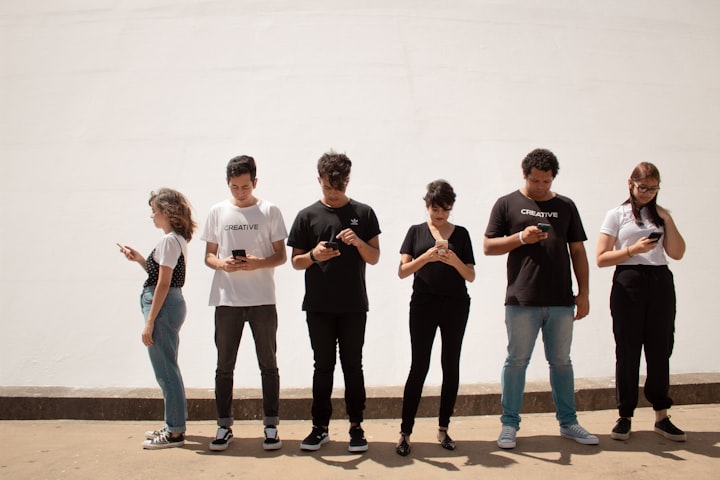Why Bad News Goes Viral
The Surprising Science Behind our Obsession with Negativity

The phenomenon of bad news spreading faster than good news is not a new one. It has been observed across different cultures and time periods, and it seems to be a universal human tendency. But why does it happen? What is it about negative information that makes it so much more contagious than positive information? There are a few factors at play that help explain why bad news spreads faster.
One of the main reasons that bad news spreads quickly is because of our brain's natural negativity bias. Our brains are wired to pay more attention to negative information than positive information. This bias is thought to have evolved as a survival mechanism - in our ancestral environment, it was more important to be alert to potential threats and dangers than to be aware of good things that were happening. This negativity bias means that negative information tends to stick in our minds more than positive information, making it more likely that we'll remember and share negative stories.
Another factor that contributes to the spread of bad news is the concept of social proof. Social proof refers to the idea that people are more likely to believe something if they see others believing it as well. When negative news starts to spread, it can create a sort of bandwagon effect, where people feel like they need to share the story or else risk being left out of the loop. This can cause the story to spread even further and faster.
Negative news often taps into our emotions as well. Negative stories can elicit feelings of fear, anger, or sadness, which can be more powerful motivators for sharing than positive emotions like joy or contentment. When we feel strongly about something, we're more likely to want to share it with others.
Another reason that bad news spreads quickly is that it often has a higher perceived relevance than good news. When something negative happens, it can feel more urgent or important to share because it might have implications for our own lives or the lives of those around us. This perceived relevance can make people more likely to share the story, even if it's not directly relevant to them.
Finally, bad news can be more sensational or attention-grabbing than good news. The media, in particular, is often accused of focusing too much on negative stories, because they tend to get more clicks and views than positive stories. This can create a self-perpetuating cycle where bad news is given more attention and coverage, which in turn causes it to spread more quickly.
While the reasons behind why bad news spreads faster are complex, there are some potential implications for society. One is that it can create a skewed perception of reality. When we're bombarded with negative news stories, it can be easy to lose sight of all the positive things happening in the world. This can lead to a sense of hopelessness and despair, which can in turn affect our mental health and well-being.
Another potential implication is that the spread of bad news can contribute to social polarization. When negative stories are shared widely, they can create a sense of us vs. them - those who are affected by the negative news and those who are not. This can lead to a breakdown in social cohesion and a sense of distrust towards others.
So what can we do about it? While we can't change the way our brains are wired or the fact that negative stories are often more attention-grabbing, we can be mindful of the stories we share and the impact they might have. We can make a conscious effort to seek out and share positive news as well as negative news, and to think critically about the stories we come across. By doing so, we can help to counteract the negative effects of the negativity bias and contribute to a more balanced and nuanced media landscape.
About the Creator
The Truth Speaks
The Truth Speaks is a compassionate and empathetic individual who seeks to understand and support others in their journey towards living a more authentic life.






Comments
There are no comments for this story
Be the first to respond and start the conversation.